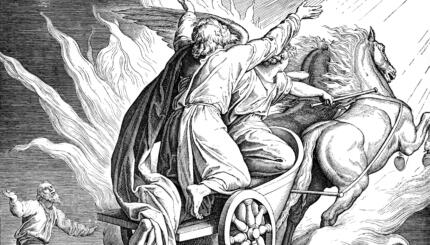Heartbreaking news from the U.S. Violence against gays. The worst mass shooting. Hints of international terrorism.
How should my fellow spiritual writers and I respond? Should we write prayers? Statements of solidarity? Or just post blank, speechless pages?
Many of us call out for justice in a loud voice. We name what is wrong with our society. We share strategies for fixing it. We point out the mistakes of individuals. We call for their punishment. We speak with certainty.
We may feel we channel a divine ethical voice. Because – as Torah teaches — God’s voice thundered down from Mount Sinai some 3,500 years ago, telling us what is right and what is wrong, in ten commandments, and in no uncertain terms. I am God; do not make images or take my name in vain; do observe Shabbat and honor your parents; do not murder, commit adultery, steal, bear false witness, or envy.
But sometimes I do feel uncertain. At those times, I remember: there are other ways to channel God’s voice, based on different understandings of God’s revelation at Mount Sinai, which we commemorated on Shavuot this week. Immediately after presenting the words of the Ten Commandments, Torah describes the experience of the listeners: “All the people see the sounds” (Ex. 20:15). Through a physiological process called “synaesthesia,” sound stimulates their vision. With heightened senses, they see things they had never before seen. When they see previously hidden dimensions of reality, they experience revelation.
Some midrashim (interpretive traditions) report an even stranger experience. The people neither hear nor see the sounds. Instead, at God’s first word, “I,” they become absorbed in a trance. When God offers the divine Self, people become entranced with love. Afterwards, Moses tries to articulate the overwhelming force of God’s love. You can’t contain it in a representation. But you can express it through respect for family, neighbors, and community. On this view, whenever we receive and give love, we experience revelation.
In the biblical Book of Kings, the prophet Elijah returns to Sinai to meet God (I Kings 19:11-13). A stormy wind blows by, but God is not in the wind. After the wind, the earth shakes, but God is not in the earthquake. After the earthquake, a fire; but God is not in the fire. After the fire, a still small voice. In that voice, God speaks to Elijah. In deep listening to a quiet voice, Elijah experiences revelation.
Each experience of revelation suggests a way for writers to respond to terrible public events.
We can seek out previously hidden dimensions of reality. We can research something we did not previously know about the situation. We can write about it, and hope to open the eyes of others.
We can perform acts of love and social responsibility. We can give money, time, food, shelter, blood – whatever the situation demands. We can write about why we chose to do so, the difference it will make, and what we learned.
We can listen carefully to still, small voices. We can interview people deeply affected. We can read essays or books by writers we would not have previously noticed. We can learn and write about marginal voices we have just started to hear.
Writing can be revelatory. Through writing, we educate ourselves. We process information; we receive insight; we discover God’s world. And we reach out to others to share what we have learned.
Shabbat
Pronounced: shuh-BAHT or shah-BAHT, Origin: Hebrew, the Sabbath, from sundown Friday to sundown Saturday.
Torah
Pronunced: TORE-uh, Origin: Hebrew, the Five Books of Moses.



